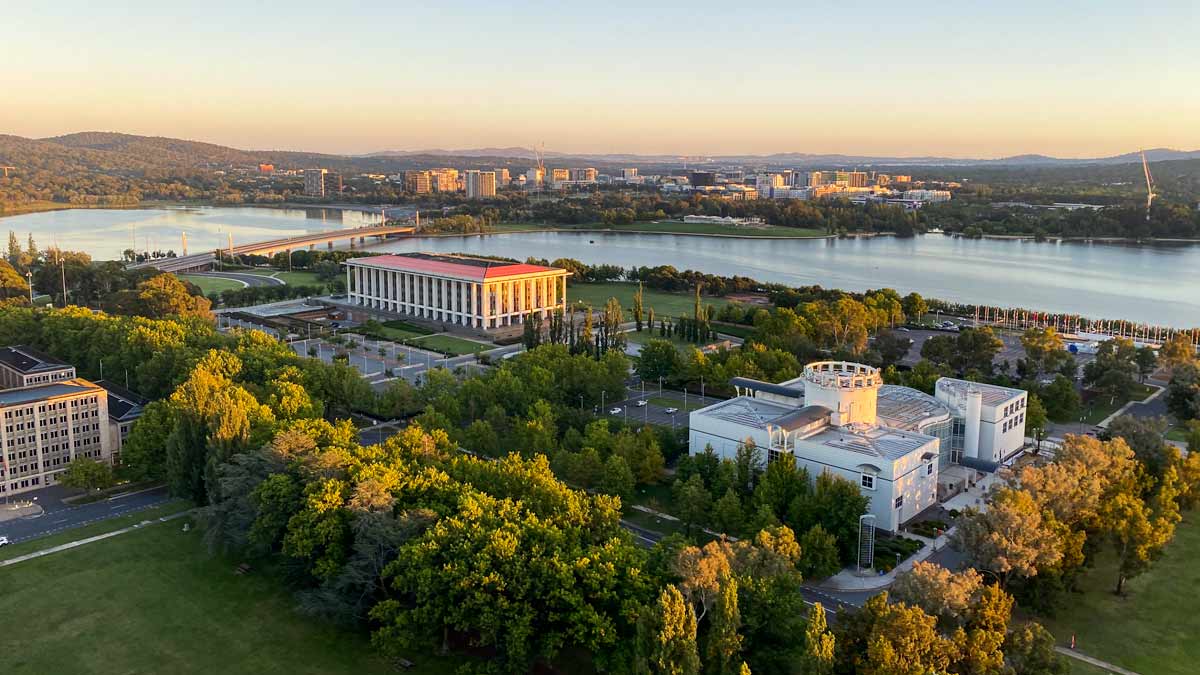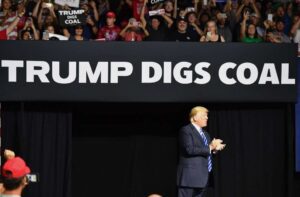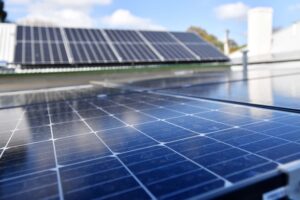 A landmark, Australian-first law prohibiting the use of fossil gas in new homes and businesses is set to come into play in the nation’s capital as early as November, following a parliamentary vote on Thursday.
A landmark, Australian-first law prohibiting the use of fossil gas in new homes and businesses is set to come into play in the nation’s capital as early as November, following a parliamentary vote on Thursday.
The ACT government’s Climate Change and Greenhouse Gas Reduction (Natural Gas Transition) Amendment Bill was passed through the Legislative Assembly on Thursday afternoon to establish the legal framework to end new gas network connections. Labor and the Greens hold a majority in the ACT assembly.
The ACT already sources all of its electricity from 100 per cent renewables, which have once again protected households from a big increase in bills, and announced last year that all fossil fuel gas connections would cease before 2045, the same date as the territory’s net zero emissions target.
Writing a gas ban into law puts the territory well ahead of the rest of Australia on electrification, considered by a broad range of experts to be one of the fastest and cheapest ways to slash energy emissions and deliver cost of living relief.
Victoria follows not too far behind with the Labor government’s “gas substitution roadmap,” which at this stage is incentivising households to invest in efficient electric alternatives to gas for home heating and hot water.
“Now that the ACT is powered by 100% renewable electricity, our next energy challenge is addressing emissions from fossil fuel gas,” said ACT energy minister Shane Rattenbury on Thursday.
“The first step in phasing out gas completely is to prevent the installation of any new gas.
“Utilising the legislative framework established in the legislation, I expect regulation to be in place by the end of the year, prohibiting new gas connections in new suburb or new infill developments.”
The new rules will prohibit all new fossil fuel gas network connections in residential and commercial areas, with connections in industrial areas still allowed until a further regulation is made.
This is no small thing. According to Evoenergy, the Territory’s gas distributor, there are currently around 139,000 gas mains connections in the ACT, with 80 per cent of all new homes still connecting to the fossil gas network.
Over the 2019-2021 period, Evoenergy reported 8,910 new connections – almost 3,000 new connections per year.
At the same time, Canberra has made strong inroads on electrification, with the recent establishment of Ginninderry as its first all-electric suburb, with Jacka and future stages of Whitlam and Denman Prospect set to follow in coming years.
The policy push to electrification – which in Australia reaches all the way to the top, with federal Labor allocating almost $3 billion in its 2023-24 budget to the cause – is supported by strong economic and climate benefits, particularly as the price of gas continues to rise.
Modelling from Rewiring Australia, headed up by Saul Griffith, demonstrates that electrification with commercially-available technologies is the fastest, cheapest way to combat inflation and decarbonise the economy.
At the household level, Griffith says replacing gas fired heating, water, cooktops and petrol/diesel cars for efficient electric alternatives and then powering them with rooftop solar can between $3,000 and $5,000 from annual energy bills.
“A small commitment now from the state governments and federal governments can actually release a huge saving for the nation down the road,” Griffith said in February in comments on the launch of a NSW pilot to electrify homes with existing gas connections.
“The Australian people have the highest uptake of rooftop solar in the world, and they know that a small push from the government will allow them to go further by installing the batteries, electric cooktops, heaters and water systems that free them of fossil fuel emissions and bills.”
But for every small policy push away from gas – and the much bigger push in the ACT – there is an equal and opposite push-back from the gas industry and associated lobby groups that stand to lose out from the electrification of homes and businesses.
Murdoch masthead The Australian marked the passage of the ACT legislation on Thursday with a report that Master Plumbers Australia and New Zealand is launching a national campaign against, as the reporter puts it, “a government-led push to rip out gas appliances.”
“The NSW network is already stretched and Victoria has a huge gas network and obviously the existing system was never designed to take the load that will be needed to push through it in order to get rid of gas,” the paper quotes the MPANZ chair Tom Martin as saying.
“They are burying their heads in the sand by choosing to go the 100 per cent electrification route even though there is not enough evidence to support that.”
Master Plumbers Association NSW chief executive Nathaniel Smith tells the paper “thousands and thousands” of jobs will be lost through electrification, with companies specialising in gas fittings forced to shut – describing the ACT’s move as “absolute insanity”.
But in comments on Thursday, Rattenbury says that the ACT’s disconnection from gas will take place over the next 20 years, giving households and industry “plenty of time” to make an orderly transition.
“It’s very much the message that , as your gas devices break down, replace them with electric ones.
“We’re going to do it in an orderly way. We’re not pulling devices out ahead of their used-by dates,” he added.
In response to the jobs claim, Rattenbury says there will be a lot of work for plumbers and gas-fitters over the next few years – and even an increase in those jobs as consumers transition off the gas network.
Elsewhere, gas industry lobby groups have repeatedly used Frontier Economics modelling to launch electrification “cost shock” media offensives, including in August of last year and again this year in April.
But as Rattenbury notes, consumers are already making up their own minds, thanks to the high coast of gas and – in the ACT, at least – the cheaper cost of grid electricity as more renewables are added. See: Low cost wind and solar protect ACT consumers from bill shock once again
“We are already seeing a lot of disconnections off the gas network and many people are already making the changeover as they’re renovating their house because they’re really motivated by tackling their greenhouse gas emissions,” he said from parliament on Thursday.
“So we’re seeing a steady transition already. This legislation makes sure we’re getting no new connections. And we can focus on the retrofits that we need to do to ultimately get fossil fuel gas out of our ACT systems.”







